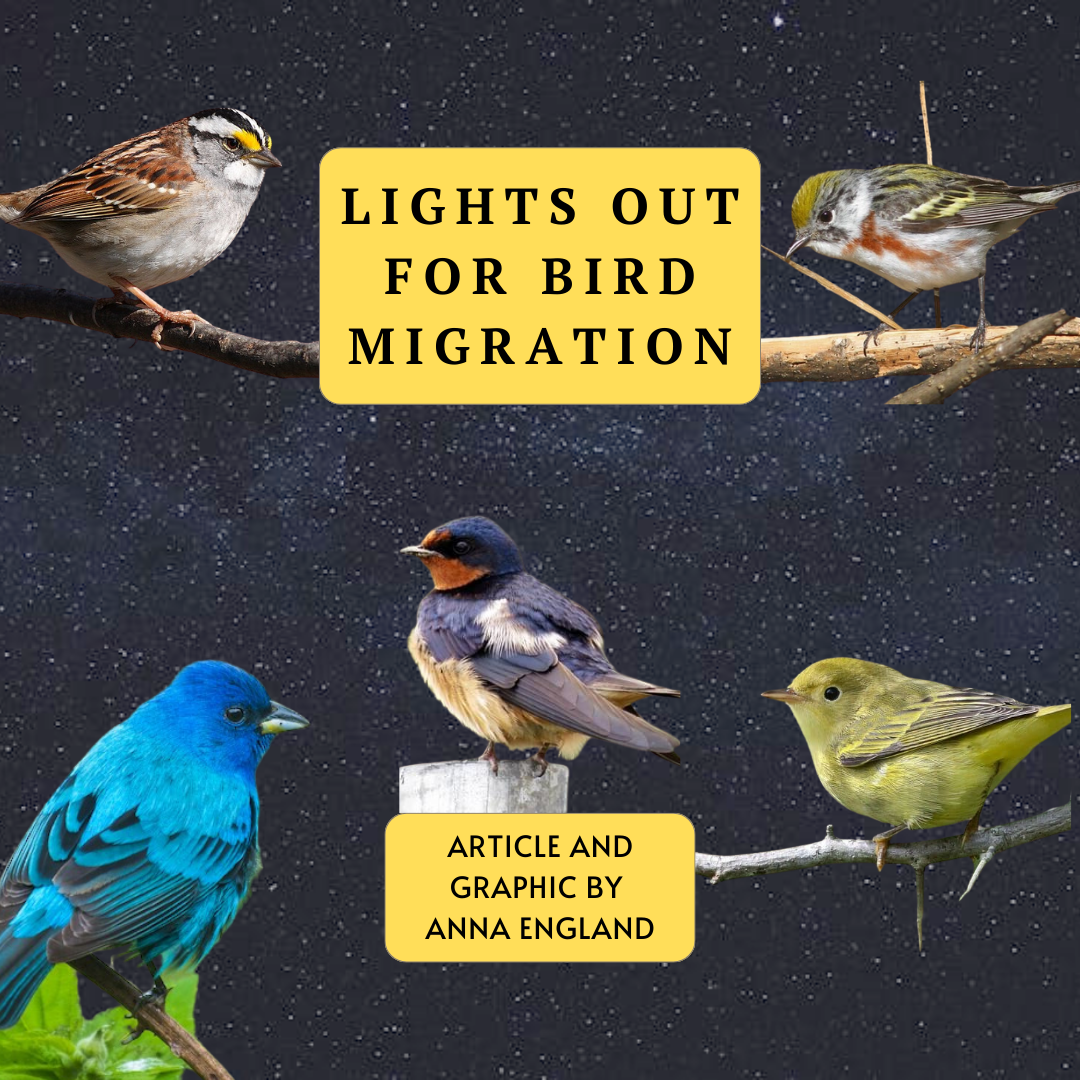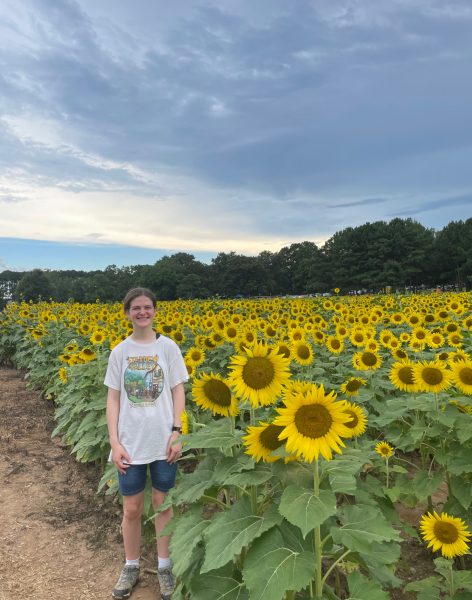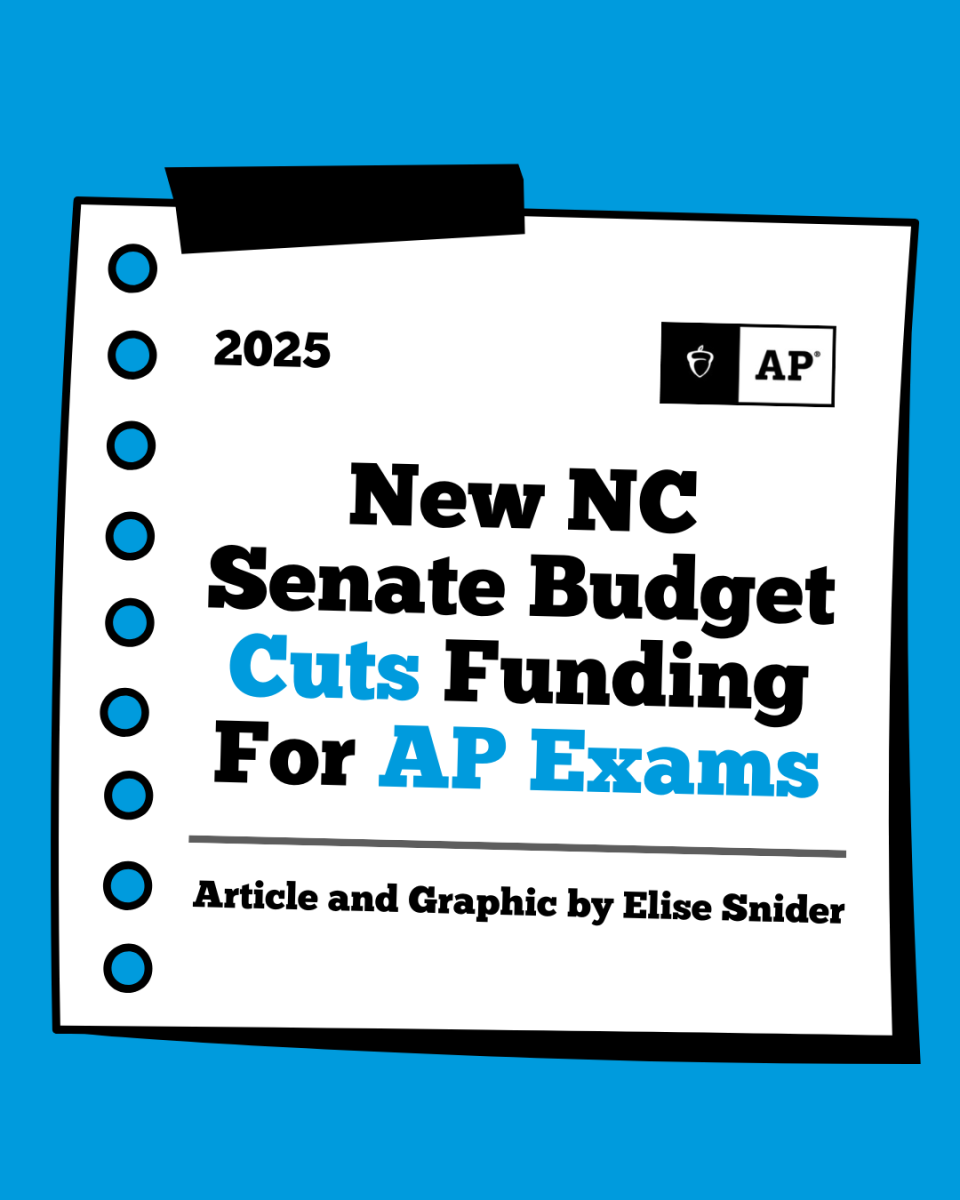From Sept. 10 to Nov. 30, the City of Raleigh is participating in a “Lights Out” program, which encourages residents to turn off non-essential nighttime lighting in order to benefit migrating birds.
Organizations such as the National Audubon Society and DarkSky International have promoted “Lights Out” campaigns in cities across the nation, and this is the City of Raleigh’s third year of involvement. As part of the efforts, “all non-essential lighting in City facilities will be turned off between 11 p.m. and 6 a.m” (Raleighnc.gov), and it is recommended that residents follow suit.
During the fall, while thousands of birds pass through Wake County each night on their long journey south, light pollution can be detrimental to these travelers. The city lights create a hazier night sky, which makes it difficult for birds to navigate. Birds often become confused, wasting their time and energy without coming any closer to their destination.
Although this problem is serious, the solution is simply to minimize nighttime lighting. Less light pollution means birds will be able to find their way and stay on schedule, making it more likely that they will reach their wintering grounds.
In addition to turning lights off, conservation groups recommend closing blinds when possible and using warm colored bulbs, which are less distracting for birds. Putting shields on outdoor lights that direct the beams towards the ground—instead of towards the sky—can be beneficial as well.
Mr. Ogren, the advisor of Enloe Envirothon, was happy to supply information about this topic. He described how this problem is especially relevant to the Raleigh area.
“As we grow in population, our light pollution is also increasing… We’re still in the top 10 [fastest] growing areas in the United States. And we have horrible urban sprawl, so we’re just [spreading] out more and more,” Mr. Ogren said.
Mr. Ogren also stressed the significance of turning off lights when the weather is cloudy. Increased cloud cover causes the birds to fly lower in the sky, closer to the lights and buildings. This means that light pollution can have an especially negative impact.
Additionally, Mr. Ogren mentioned that bird migrations occur in both the fall and the spring, so it is important to follow the same “Lights Out” procedures when the end of March comes around.
Angelina Li, the co-president of Enloe Bird Club, provided further insight.
“Usually birds… stop at these nice little recharge points and then they keep going, but they get thrown off by these bright cities, and they just waste all their energy flying around,” Li stated.
Li explained that when birds waste time flying around cities instead of traveling south, they fall behind on their schedule. This is a major problem because they have rest stops on regular intervals where they can take a break and find food. When birds are unable to reach the rest stops in the usual amount of time, it forces them to fly for hours without any relief. They become exhausted, which renders them vulnerable to predators.
Li also said that light pollution affects circadian rhythms, which causes birds to migrate at the wrong time of the year.
“[That means] stopover points are not very productive, [so birds] don’t get the food that they need,” Li elaborated.
In other words, when birds try to migrate too early or too late in the year, it is difficult for them to find enough food because plants at the rest stops are not in their most fruitful stage.
Li also pointed out that light pollution is far from the only hazard birds face. They are being threatened by cars, habitat loss, and cats as well.
With all these challenges, birds clearly need all the help they can find, and the Enloe Bird Club is more than willing to assist in the conservation efforts. They “are always open to new projects,” in addition to doing games, presentations, and field trips.
“Birds have always had it rough, but some birds are benefiting [from urbanization],” concluded Li. “ They also have to learn how to adapt… Earth [is] not going to stay the same forever.”
Resources
Raleigh Joins Lights Out for Bird Migration | Raleighnc.gov
Save Birds, Go Lights Out NC | Audubon North Carolina
The Basics of Bird Migration: How, Why, and Where | All About Birds
Dim the Lights for Birds at Night! | U.S. Fish & Wildlife Service
Turning Off Your Lights Could Save Millions of Birds Each Year from Deadly Building Collisions
Lights Out Program | Audubon
Five Principles for Responsible Outdoor Lighting | DarkSky International
Light Pollution Got You Hazy? We’re Here to Clear the Smog | by USFWS Columbia Pacific Northwest Region
Why Birds Hit Windows—and How You Can Help Prevent It
Threats to Birds: Collisions (Nighttime Lighting) | U.S. Fish & Wildlife Service
A Guide to Fall Migration in the Mountains and Piedmont | Audubon North Carolina













